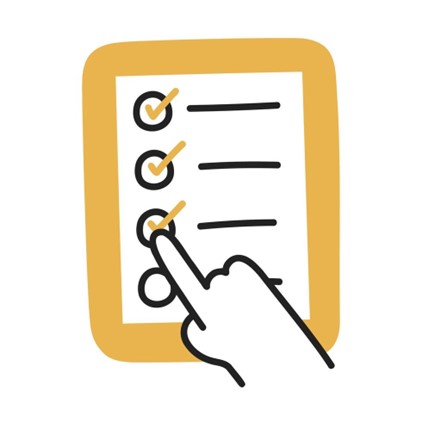From the Diagnosis to the Treatment
Your To-Do List

(Many of the steps described below should be undertaken simultaneously to save time, so intervention can start as soon as possible. Please note that this does not constitute legal/medical/other professional advice and is provided as information only)
1. Get an autism diagnosis. Obtaining a proper diagnosis is crucial for your child to receive the necessary help and support.
2. Once diagnosed with autism, talk to your local autism support group like us who can provide locally relevant and detailed information on ABA. Your job is to find quality (a) ABA agencies, (b) psychologists, and (c) special education attorneys.
3. ABA agencies: Contact multiple ABA agencies to initiate the application process. Inquire about their service coverage area and the types of health insurance they accept. It is essential to choose a reputable agency that offers research-based services. Speak with other parents for recommendations and know that some agencies may have waitlists.
4. Secure funding: Begin the eligibility process for funding by contacting your Regional Center, health insurance provider, and local school district.
- Health Insurance: Consult with ABA agencies to determine which insurance plans they accept and gather the required paperwork. Explore available coverage options.
- Your Public School: Familiarize yourself with the Individuals with Disabilities Education Act (IDEA), which guarantees a “Free and Appropriate Public Education” (FAPE) to eligible children. Advocate for ABA as the appropriate education for your child, and consider consulting special education attorneys experienced in ABA cases.
- Regional Center: They are the payor of the last resort which means you’d need to explore health insurance and school first. Regional Center will help with ABA only if you can show them you were not successful with other sources of funding (“generic sources”).
5. Obtain an independent assessment: Seek an assessment from a professional (Ph.D. or Psy.D.) familiar with autism and ABA treatment. This assessment is crucial in building your case for ABA intervention. Ensure the evaluator is independent, with no financial ties to the Regional Center or local school district responsible for funding the ABA program. Seek referrals and recommendations from other parents or special education attorneys.
6. Educate yourself about autism and ABA: Read up on autism-related subjects and gain a comprehensive understanding of proper ABA practices to avoid counterproductive efforts. Familiarize yourself with the legal rights you and your child are entitled to, empowering you to become a better advocate.
7. Consider hiring a special education attorney: Many families have sought their assistance to secure high-quality, intensive ABA programs for their children. They attest that the investment was worthwhile.
Remember, everyone may appear friendly but ultimately no one has a bigger stake than you in this. There are no do-overs when it comes to intervention, so be informed, be firm and move quickly.

